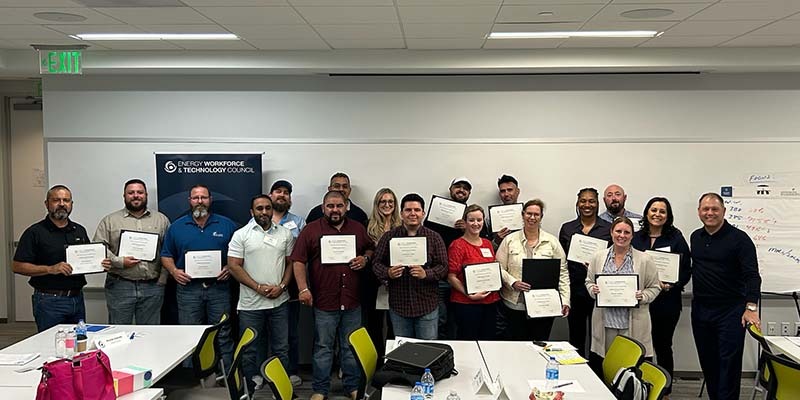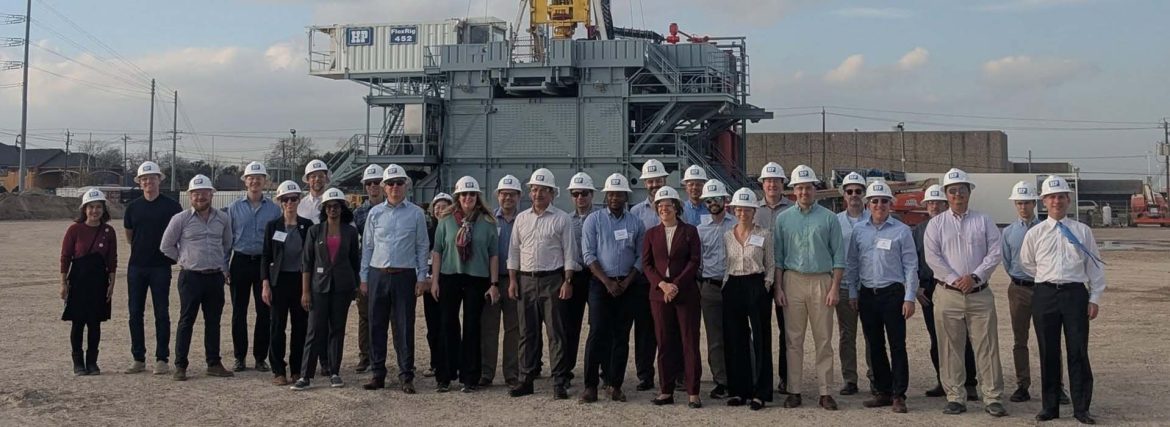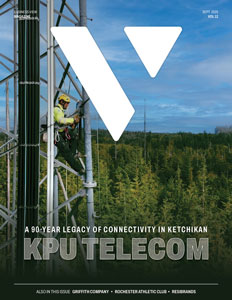Powering the Future
Driving Safety, Innovation, and Advocacy
For more than nine decades, the Energy Workforce & Technology Council (EWTC) has stood at the intersection of energy development, safety, and technological innovation. From its founding in 1933—when it was initially tasked with developing fair practice codes for oil field equipment—to its present-day role representing the companies that fuel the global energy economy, EWTC has consistently evolved to meet the needs of an ever-changing industry.
In a recent conversation with Business View, Molly Ederman, President of EWTC, reflected on the organization’s history, its advocacy efforts, and its commitment to equipping both companies and their people to succeed in the complex world of energy.
A Legacy of Safety and Standards
Safety has long been the beating heart of EWTC’s mission. Over the decades, the council has developed industry-leading guidelines that underpin operations in well servicing, coiled tubing, snubbing, hydraulic workover, well stimulation, and wireline. These guidelines are not static—they are continuously updated with the latest insights and best practices from field experts, ensuring that member companies operate at the highest level of safety and efficiency.
“Safety is our foundation,” Ederman emphasized. “It’s the thread that connects everything we do.”
Each year, EWTC hosts a Safety Awards Program that recognizes companies who go beyond compliance to lead on proactive risk management. Rather than only focusing on lagging indicators, the program highlights leading practices such as near-miss reporting and safety engagement, encouraging a culture of continuous improvement.
 Advocacy for Smart Energy Policy
Advocacy for Smart Energy Policy
EWTC is not only a technical body; it is also a powerful voice for the industry on the policy stage. The council actively engages lawmakers and regulators to promote policies that balance energy development with workforce safety and responsible operations.
Among its recent priorities, EWTC has:
- Opposed the methane tax, which it argues imposes unnecessary costs without delivering proportional benefits.
- Supported LNG export approvals, underscoring the importance of U.S. energy leadership in global markets.
- Pushed for permitting reform, recognizing that stalled infrastructure projects jeopardize the more than 350,000 U.S. jobs tied to oilfield services and equipment.
“Regulatory stability is essential for growth,” said Ederman. “We work to ensure that policies enable innovation and access to energy while maintaining high standards of responsibility.”
Harnessing Technology and Innovation
Oilfield services and equipment providers have always been at the forefront of applying new technologies to solve challenges in the field. Today, that tradition continues with the integration of automation, artificial intelligence (AI), advanced analytics, and remote monitoring.
Member companies are deploying AI-driven predictive maintenance systems to minimize downtime and extend equipment life. Remote monitoring tools allow operators to oversee well conditions in real time, reducing the need for on-site personnel and lowering emissions from travel. Advanced analytics are driving efficiency gains across drilling, stimulation, and production.
“These technologies are helping us solve problems faster, more efficiently, and with greater environmental responsibility,” Ederman explained. “Even incremental successes can have a compounding impact across the industry.”
As the sector faces rising energy demand—amplified by the power requirements of AI computing and data centers—such innovations will be essential to ensuring operational excellence while advancing sustainability goals.
 Building Tomorrow’s Leaders
Building Tomorrow’s Leaders
EWTC is equally committed to preparing the workforce of the future. Its comprehensive leadership programs serve professionals at every level, from new supervisors to C-suite executives. These programs combine executive coaching, mentoring, and peer-to-peer learning, creating a pipeline of leaders who are equipped to navigate a rapidly evolving industry.
One flagship initiative is the Secure Well certification program, which provides technical training focused on safety, operational readiness, and leadership. Participants leave with not just enhanced skills, but also new perspectives on how to lead effectively in high-stakes environments.
“The feedback we hear time and again,” Ederman noted, “is that people come away leading differently. They think more strategically, communicate more clearly, and have the confidence to guide their teams through challenges.”
Combatting Misconceptions
One of the most persistent challenges facing the oil and gas industry is not operational—it is reputational. Misconceptions and misinformation often cloud public understanding of the industry’s role in powering daily life and advancing global progress.
EWTC takes an active role in addressing these narratives, engaging both within and outside the industry to share accurate information and highlight the sector’s contributions.
“It’s about telling our story,” Ederman said. “The people who work in this industry are problem-solvers, innovators, and community builders. We want the public to understand the positive impact oil and gas has—and will continue to have—in meeting energy demand.”
The Future: An “All of the Above” Energy Strategy
Looking ahead, EWTC does not frame the future as a transition away from oil and gas, but rather as an expansion of energy demand across all sources. With global energy use expected to surge, particularly with the rise of energy-hungry technologies like AI, EWTC promotes an “all of the above” strategy that recognizes the essential role of traditional energy sources alongside renewables.
“Gas is critical as a base load power source,” Ederman explained. “It provides the stability we need to support everything from advanced manufacturing to data-driven technologies.”
The council is heavily investing in updating industry guidelines and expanding technical training to ensure that its members remain both safe and competitive in the years ahead. Over the next two to five years, this focus will remain central as EWTC works to keep the energy workforce prepared, resilient, and innovative.
 Leading Through People, Policy, and Progress
Leading Through People, Policy, and Progress
As the conversation drew to a close, Ederman reflected on EWTC’s role as a unifying force in an industry that is both highly technical and deeply human.
“At the end of the day, it’s about people,” she said. “We’re here to support the workforce that keeps energy flowing, to advocate for smart policies, and to champion the innovations that will power the future.”
With its strong foundation in safety, a forward-looking approach to technology, and a relentless focus on workforce development, the Energy Workforce & Technology Council continues to position its members—and the broader industry—for long-term success.
AT A GLANCE:
Who: Energy Workforce & Technology Council (EWTC)
What: Expertly representing the companies that fuel the global energy economy
Where: Houston, Texas
Website: https://www.energyworkforce.org/
PREFERRED VENDORS
Stress Engineering Services is a global leader in engineering services and solutions for a variety of industries. We provide comprehensive design, analysis and testing services with an unsurpassed level of engineering integrity and skill. Our engineering methods, advanced technology, innovative applications, and knowledgeable staff provide proven, quantifiable benefits to clients.
Stress Engineering Services – https://www.stress.com



